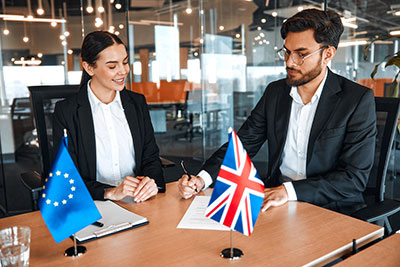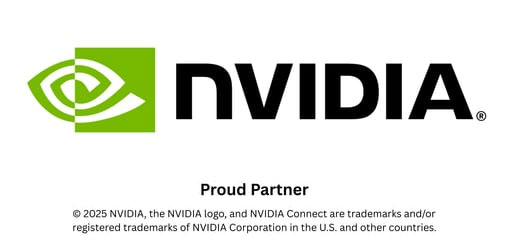“Need more leads but lost in the digital rulebook maze?” If that sounds familiar, you’re not alone. Welcome to read more about GDPR-compliant leads.
Across Europe, data protection is no longer an abstract legal topic, it’s a growth constraint. Generating GDPR-compliant leads ethically isn’t optional; it’s operational. Yet the rules aren’t uniform. A contact form in Paris, a webinar in Helsinki or an outbound email from London all fall under slightly different regimes.
Today’s article isn’t exactly about AI, but I thought to write about something that I’m also familiar with, and able to share the knowledge with you.
France & Germany, The Consent Capitals of Europe
If your lead strategy works here, it will likely work anywhere.
France
The French data authority CNIL enforces one of Europe’s strictest interpretations of consent. Marketing emails, cookies and trackers all require opt-in consent, and pre-ticked boxes remain illegal. The CNIL regularly fines firms for using legitimate interest as a shortcut for advertising or prospecting (CNIL, 2023 guidance on marketing and consent).
Key rule: double opt-in is best practice, and CNIL expects a clear audit trail proving it. Retention matters too; lead data older than three years without interaction must be deleted or re-consented.
Germany
The BfDI (Federal Commissioner for Data Protection and Freedom of Information) and regional DPAs take an equally conservative stance. The Federal Court of Justice reaffirmed in 2021 that promotional emails require explicit consent unless a prior business relationship exists (BGH, I ZR 126/20).
German privacy culture makes even cold B2B outreach contentious. Expect to document your balancing test if relying on legitimate interests.
In short: for France and Germany, consent isn’t a checkbox, it’s a compliance currency.
United Kingdom, Post-Brexit Divergence, But Only Slight
The UK now runs under UK GDPR and the Privacy and Electronic Communications Regulations (PECR). In practice, the rules mirror the EU’s, but enforcement style differs.
The Information Commissioner’s Office (ICO) allows legitimate-interest B2B outreach when:
the contact is at a business address (e.g., jane@company.com),
the product or service is relevant to the recipient’s role, and
a clear unsubscribe is provided.
Consumer-facing marketing remains strictly opt-in.

The ICO’s 2024 guidance on AI and Marketing warns that profiling and lead scoring can become automated decision-making under Article 22, triggering additional duties. In short, the UK is slightly more pragmatic than France or Germany, but still expects evidence that your outreach is proportionate and documented.
Pragmatic Nordics, Transparent and Tough on Retention
Finland
The Office of the Data Protection Ombudsman applies GDPR faithfully, but Finnish regulators focus on data minimisation and retention. Leads must have a legitimate business purpose, and unnecessary fields, such as birth date, private phone and so on, are frowned upon. Finland’s consumer-protection authority also polices unsolicited marketing, making consent mandatory for B2C outreach even if data is publicly available.
Sweden & Denmark
Both countries’ DPAs emphasise transparency over paperwork. The Swedish Integritetsskyddsmyndigheten (IMY) encourages clear, layered privacy notices and warns against reusing social-media data for lead generation without explicit permission.
In Denmark, the Datatilsynet favours double opt-in and has fined companies for lacking proof of consent. A notable 2023 case fined an insurer DKK 1.5 million for reusing customer data for new marketing campaigns.
Bottom line: the Nordics are business-friendly, but ethically strict. Keep records lean, delete early, and communicate clearly.
Switzerland is Outside the EU, But Not Outside the Spotlight

Switzerland’s Federal Act on Data Protection (nFADP) took effect in September 2023. It aligns closely with GDPR but uses different terminology.
Key points for marketers:
Consent must be explicit for sensitive data.
Cross-border transfers to the EU are deemed safe (mutual adequacy).
Transfers to the US or other third countries still require safeguards.
The Swiss authority (FDPIC) can now levy fines up to CHF 250,000 against individuals responsible for breaches, including executives. That’s a personal-liability dimension few EU laws have. If you’re running pan-European campaigns from a Swiss HQ, align with GDPR standards anyway; it simplifies compliance.
Southern Europe; Consent Culture with Looser Edges
Italy‘s Garante and Spain‘s AEPD both follow GDPR closely but show leniency in B2B contexts.
Italy allows marketing to business addresses under legitimate interest if contextually relevant.
Spain’s AEPD maintains heavy enforcement on cookie banners and ad-tech tracking; fines exceeded €30 million in 2024 (AEPD annual report).
In both markets, language transparency is key; privacy policies must appear in the local language and clearly explain international data transfers.
Building Ethical Lead Engines
Across Europe, one rule endures: Trustworthy data converts better. A prospect who knowingly opts in is more likely to engage, convert and stay. So, ethical lead generation isn’t only about avoiding fines; it’s good business.
Here’s how to embed that logic operationally:
Map your jurisdictions
Know where your leads originate and which DPA has oversight. Maintain a data map of sources, storage and transfers.Implement dynamic consent
Give users granular control: Newsletter vs. product updates vs. events. The CNIL explicitly endorses layered consent.Double-record keeping
Store both the consent itself and the context (time, method and content of form). German courts demand verifiable proof, not system logs alone.Localise privacy notices
Translate and adapt. Not just linguistically, but culturally. A Swedish prospect expects minimalism; an Italian prospect expects formality.Vet your vendors
If you buy or share leads, use Data Processing Agreements (DPAs) that specify roles, responsibilities and transfer mechanisms.Automate deletion
Schedule periodic purges. France’s three-year inactivity rule is a safe benchmark.Train your marketing team
Most GDPR violations start with ignorance, not malice. Teach teams to recognise where personal data starts (spoiler: almost everywhere).
Enforcement Trends to Watch
The European Data Protection Board (EDPB) has announced a 2025-2026 coordinated enforcement action on AI-based profiling and data-broker practices.
The CNIL has begun targeting lead brokers who cannot trace consent origins.
The ICO in the UK is focusing on small businesses ‘ misuse of purchased lists.
The Nordic DPAs collaborate on social-media data scraping investigations.
These trends point toward one outcome: Regulators expect ethical lead generation to be proactive, not reactive.
Final Thought
The dream of one digital market remains just that, a dream. Each jurisdiction balances privacy, marketing freedom and enforcement differently. But one truth holds everywhere: If you design your lead systems for clarity, consent and control, they’ll survive any audit.
Ethical, GDPR-compliant leads are not a burden. They’re proof that your business earns attention rather than grabs it. In a Europe obsessed with data protection, that’s the ultimate competitive edge.
Victor A. Lausas
Chief Executive Officer
Subscribe to North Atlantic’s email newsletter and get your free copy of my eBook,
Artificial Intelligence Made Unlocked. 👉 https://www.northatlantic.fi/contact/
Discover Europe’s best free AI education platform, NORAI Connect, start learning AI or level up your skills with free AI courses and future-proof your AI knowledge. 👉 https://www.norai.fi/






